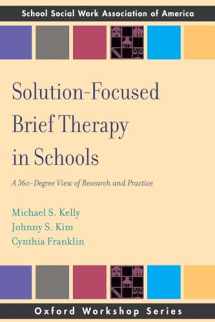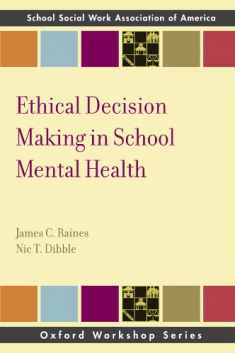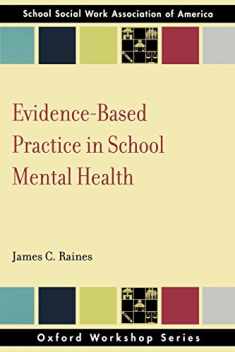
Solution Focused Brief Therapy in Schools: A 360-Degree View of Research and Practice (Workshop) (SSWAA Workshop Series)
Book details
Summary
Description
Since its creation in the 1980s, solution-focused brief therapy (SFBT) has gradually become a common and accepted treatment option for many mental health professionals. With its emphasis on client strengths and short-term treatment, SFBT is well suited to school contexts, given the wide array of problems and the large caseloads of most school-based practitioners. This book, as part of the Oxford Workshop Series, will give school social workers the tools they need to understand and use SFBT with students, families, teachers, and administrators. In clear language, the authors briefly cover the history of the development of SFBT, highlighting the pioneering work of Insoo Kim Berg and others that led to the development of the Working on What Works (WOWW) program for middle schools, as well as several treatment manuals produced in collaboration with the European Brief Therapy Association and North American Brief Therapy Association. Careful not to overstate results from a recent meta-analysis, the authors show where SFBT has been shown to be effective, especially with families and for classroom behavior problems, and how school professionals can incorporate its principles into their daily practice. Case examples describe in detail how school professionals have used SFBT with a group of students with text anxiety; to create a family health and employment fair in an under resourced school; with grandparents raising their grandchildren; and by coaching teachers to identify and solve classroom behavior issues with their students. An entire chapter tells the story of the Garza Independence High School in Austin, a solution-focused school designed to engage urban high school dropouts or students at risk of dropping out to help them finish high school. With 52% of Garza graduates enrolled in a post-secondary education program, outcomes are promising and similar schools are being developed around the country. Though the authors take care not to overstate the relevance and utility of SFFBT in all situations, they make the techniques involved comprehensive in a way that practitioners at every skill level will find valuable.


We would LOVE it if you could help us and other readers by reviewing the book
Book review





